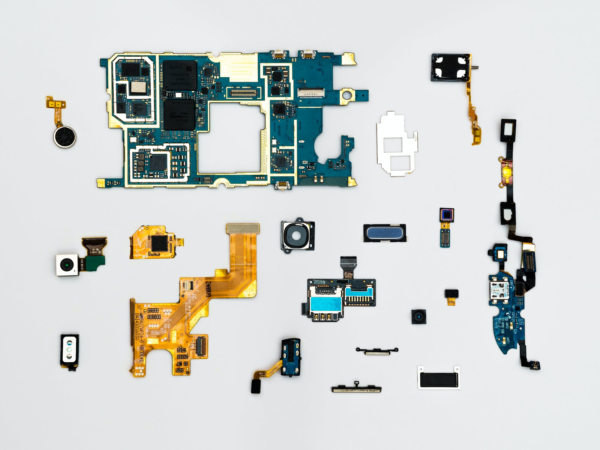Has anyone ever told you to “get a clue?” It probably seemed kind of impolite at the time. Yet, when it comes to uncovering the mysteries of ITAD (IT asset disposition) and asking the right ITAD vendor questions, it’s actually solid advice.
To make the best ITAD decision for your company, you need to go beyond asking standard questions – the kind that doesn’t yield the most helpful information or doesn’t help you make smart, informed decisions. You need to gather more clues.
The ITAD questions you DON’T want to ask
These are ‘red herring’ questions. They just distract from more relevant information:
- Are you PCI compliant? ISO 27001?
- Do you do background checks?
- What are the audit results from your recent R2/ISO audit?
- Do you punch/crush the hard drives?
- What remarketing alternatives do you offer (e.g., donation, employee purchase)?
- Is your facility nearby?
These are ‘usual suspect’ questions. They just don’t go deep enough:
- Are you certified to R2 or E-Stewards?
- Do you pick up the equipment?
- Do you erase/shred hard drives? At DoD or NIST standards?
- Do you provide a report of the serial numbers?
- Do you remarket/recycle?
- How much do you charge/pay?
The 10 ITAD questions you DO want to ask
How does the average company sift through the mysteries of ITAD to get the information they need? Start with the concept of risk and keep it front and center throughout your vendor selection process. Specifically, you want a well-informed analysis of your company’s risk related to:
- Data security/privacy
- Regulatory/industry compliance
- Financial implications
- Environment protection
- Brand protection

Then, analyze how the potential ITAD vendor responds to these 10 risk-related questions:
#1 Certifications
It’s not enough to be certified. Even a combination of R2, E-Stewards, NAID, ADISA, RIOS, ISO certifications doesn’t guarantee the ITAD vendor provides enterprise-class services. Go further here and also check the “scope” of their certifications. Confirm that it covers the specific facilities and processes used for your ITAD. And then restrict your vendor only to use those facilities.
#2 Logistics
Often, companies pay great attention to internal processes but are less informed about their equipment’s security during transport. Does the ITAD partner provide secure logistics appropriate for your risk level? Consider options such as secure packaging, GPS tracking, and sealed, dedicated trucks. These options may cost extra, but are worth the expense.
#3 ERP Systems
ITAD vendors typically provide a detailed, end-of-process audit report. Then, companies use that data to reconcile their systems and demonstrate compliance. But should you rely on that audit report?
Enterprise-class ITAD services require a robust, built-for-purpose, cloud ERP. The ERP, in turn, should be integrated with processes, financial systems and reporting. In addition, the ERP should guard against and detect processing errors. Finally, the ERP should be a development platform, enabling the ITAD vendor to be flexible to meet client needs and future business models. Look at it this way: data integrity depends on systems and process integrity. Less expensive ERP systems don’t provide that.
#4 Quality
Companies can fail at DIY data erasure because they don’t have best practice checks and balances in place to ensure 100% risk elimination. Of course, ISO 9001 or RIOS certifications demonstrate a commitment to quality. But, that commitment to quality must run through the entire operation. There must be quality built into the process design and quality checks completed afterward. With a strong ERP, that cascades into the data integrity as well.
#5 Labor
One of the primary ways some ITAD “recyclers” manage fluctuating volumes and labor costs is by hiring temporary labor. This practice can present security risks as well as quality problems. A strong ITAD service provider values its workforce, cross-trains them to handle fluctuations, and hires only the best.
#6 Background checks
If an ITAD vendor tells you: “we do background checks on every employee,” that information is excellent to have. Next, ask them how it impacts their hiring decisions. What criteria disqualify a new hire? Just violent felons? What about fraud? Theft? Misdemeanors? And do they have time limits in place?
It’s good to be understanding of people’s histories, but not at the expense of your assets and data security.
#7 Repair
Ask your potential ITAD partner whether they have a repair operation to fix minor defects. Then, go further. Ask how they handle more significant problems that may require circuit board repairs and component replacement.
Your ITAD vendor should partner with you to maximize the life and value of your equipment. Don’t settle for a partner that simply “fails” equipment with no attempt to upgrade it and maximize its yield. Look for repair process expertise.
#8 Valuation
If your ITAD vendor purchases your equipment, ask how they determine the value. The best option is to have a consignment agreement, so your ITAD vendor shares revenue based on the actual selling price. If they don’t offer the consignment option, ask them to provide specific data on their valuation process.
#9 Sustainability
Some ITAD vendors claim a “zero landfill policy.” As part of your due diligence, learn the exact steps the vendor takes to fulfill that promise. How do they ensure nothing goes into a landfill?
Professional ITAD partners provide routine reporting that includes greenhouse gas and waste diversion data. This is critical information that your corporate CSR/sustainability team will want to see. Remember, vendors aren’t green if they can’t prove it.
#10 Business reviews
Holding quarterly or annual business reviews with your ITAD partner is crucial for developing a deeper partnership. Ask what they provide for these conversations. At a minimum, you should expect an analysis of the products, processes, trends, and financial performance. You should also ask your ITAD vendor to provide educational updates as new regulations, and market shifts occur. Challenge them to be a partner, not just a vendor. What are they doing to optimize your program?
With clues gathered and mysteries uncovered, you’re ready to choose your IT partner
There are, of course, many more questions you could ask an ITAD vendor. But, these 10 questions – along with an assessment of your company’s risks and risk tolerance – should get you off to a good start. Importantly, throughout the vendor selection process, it’s always appropriate to press for more detail or view process documentation.
What additional questions would you ask an ITAD vendor? Let’s start a conversation. Contact us today.





